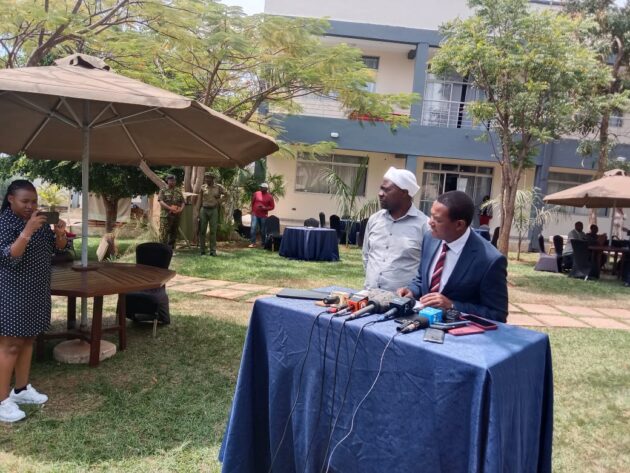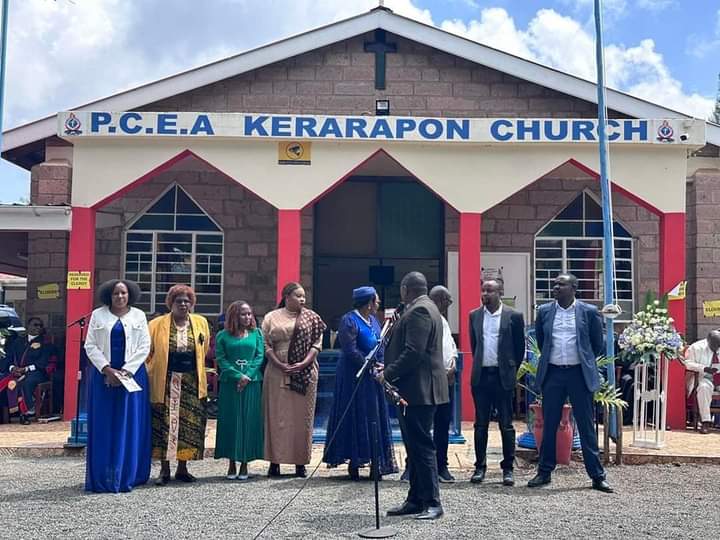MPs have moved to alter the National Dialogue Committee report ignoring the opposition demands that the document be passed without any amendment.
National Assembly’s Justice and Legal Affairs Committee (JLAC) has tabled a report in Parliament proposing amendments to the Independent Electoral and Boundaries (Amendment) Bill, 2024.
The Bill is among the proposed legislations that accompanied the Nadco report negotiated between by President William Ruto and opposition chief Raila Odinga’s teams.
Azimio argued the document is negotiated and should be ringfenced from any amendments by legislators.
“We retain the view that the report must be implemented as is. It is also our position that the processing of the Nadco report and the Bills should be fast-tracked,” Azimio said last month in a statement.
“Regrettably, we have also been informed by forces in Kenya Kwanza, in and outside Parliament, who are determined to undermine the report. We notify those forces that should any efforts to undermine or tamper with the report succeed, there will be a very heavy price to pay.”
But the JLAC, in its report, has defended the decision to amend the report, citing the Speaker’s directive.
JLAC chairman George Murugara said their decision to alter sections of the proposal is within the law.
“Despite the fact that the Bill is a politically negotiated document, pursuant to the mandate of the committee and the requirements of Article 118 of the Constitution and Standing Order 127 (3), the committee is at liberty to propose necessary amendments to the Bill in its report to the House,” he said in the report.
“This is informed by the communication from the chair (No. 006 of 2024), which directed the respective committees to ensure strict adherence to the due process in the enactment of legislation.”
Murugara said the Bill constitutes a piecemeal approach to the review of the Act and other legislations relating to elections.
“Parliament should consider a comprehensive review of the electoral laws to address political, operational and institutional challenges affecting the electoral process in a wholistic manner,” said Murugara, who is also Tharaka MP.
In the changes currently being considered before Parliament, the committee has proposed changes to the length of time for elections audit by the IEBC, as well as the terms of office for the electoral agency’s CEO.
The Murugara-led team also wants the delimitation of the boundaries to be a substantive clause and not statute.
On the term of IEBC CEO, the committee recommended a single term of six years instead of the three years renewable once as was proposed by Nadco.
JLAC report argued that reducing the term of IEBC CEO from the current five years to three years would jeopardise the performance of the functions of the office.
The team claimed IEBC CEO requires at least two years to learn the ropes.
“In this regard, the committee noted that it may be necessary to increase the term of the secretary to a non-renewable term of six years to ensure that the secretary understands all that is expected in the performance of his or her functions and enhance their competence and independence in the role,” the JLAC report reads.
“It was their view that the amendments in the Bill ought to provide that the current Secretary of the Commission serve for the remainder of their unexpired term.”
JLAC also overruled the Nadco Bomas team on the length of time required for the electoral agency to review its operations after every general election.
While Nadco document proposed one year within which such review should be conducted, JLAC has on the other hand amended the section and added the electoral agency six more months to carry out the evaluation.
“The committee observed that a review of the conduct of a general election is a sensitive evaluation process,” the report reads.
“The review shall be completed within 18 months after every general election and the commission shall publish the report in the Gazette and submit the report to Parliament.”
The parliamentary team also differed with the Nadco team on how to handle the boundaries delimitation process.
While the Bomas team wanted the boundaries review anchored as a statute, JLAC has amended the section and the same captured as new a new and distinct part of the Act.











